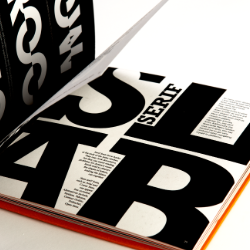-
Study
-
Quick Links
- Open Days & Events
- Real-World Learning
- Unlock Your Potential
- Tuition Fees, Funding & Scholarships
- Real World Learning
-
Undergraduate
- Application Guides
- UCAS Exhibitions
- Extended Degrees
- School & College Outreach
- Information for Parents
-
Postgraduate
- Application Guide
- Postgraduate Research Degrees
- Flexible Learning
- Change Direction
- Register your Interest
-
Student Life
- Students' Union
- The Hub - Student Blog
- Accommodation
- Northumbria Sport
- Support for Students
-
Learning Experience
- Real-World Learning
- Research-enriched learning
- Graduate Futures
- The Business Clinic
- Study Abroad
-
-
International
International
Northumbria’s global footprint touches every continent across the world, through our global partnerships across 17 institutions in 10 countries, to our 277,000 strong alumni community and 150 recruitment partners – we prepare our students for the challenges of tomorrow. Discover more about how to join Northumbria’s global family or our partnerships.
View our Global Footprint-
Quick Links
- Course Search
- Undergraduate Study
- Postgraduate Study
- Information for Parents
- London Campus
- Northumbria Pathway
- Cost of Living
- Sign up for Information
-
International Students
- Information for International Students
- Northumbria and your Country
- International Events
- Application Guide
- Entry Requirements and Education Country Agents
- Global Offices and Regional Teams
- English Requirements
- English Language Centre
- International student support
- Cost of Living
-
International Fees and Funding
- International Undergraduate Fees
- International Undergraduate Funding
- International Masters Fees
- International Masters Funding
- International Postgraduate Research Fees
- International Postgraduate Research Funding
- Useful Financial Information
-
International Partners
- Agent and Representatives Network
- Global Partnerships
- Global Community
-
International Mobility
- Study Abroad
- Information for Incoming Exchange Students
-
-
Business
Business
The world is changing faster than ever before. The future is there to be won by organisations who find ways to turn today's possibilities into tomorrows competitive edge. In a connected world, collaboration can be the key to success.
More on our Business Services-
Business Quick Links
- Contact Us
- Business Events
- Research and Consultancy
- Education and Training
- Workforce Development Courses
- Join our mailing list
-
Education and Training
- Higher and Degree Apprenticeships
- Continuing Professional Development
- Apprenticeship Fees & Funding
- Apprenticeship FAQs
- How to Develop an Apprentice
- Apprenticeship Vacancies
- Enquire Now
-
Research and Consultancy
- Space
- Energy
- AI and Tech
- CHASE: Centre for Health and Social Equity
- NESST
-
-
Research
Research
Northumbria is a research-rich, business-focused, professional university with a global reputation for academic quality. We conduct ground-breaking research that is responsive to the science & technology, health & well being, economic and social and arts & cultural needs for the communities
Discover more about our Research-
Quick Links
- Research Peaks of Excellence
- Academic Departments
- Research Staff
- Postgraduate Research Studentships
- Research Events
-
Research at Northumbria
- Interdisciplinary Research Themes
- Research Impact
- REF
- Partners and Collaborators
-
Support for Researchers
- Research and Innovation Services Staff
- Researcher Development and Training
- Ethics, Integrity, and Trusted Research
- University Library
- Vice Chancellors Fellows
-
Research Degrees
- Postgraduate Research Overview
- Doctoral Training Partnerships and Centres
- Academic Departments
-
Research Culture
- Research Culture
- Research Culture Action Plan
- Concordats and Commitments
-
-
About Us
-
About Northumbria
- Our Strategy
- Our Staff
- Our Schools
- Place and Partnerships
- Leadership & Governance
- University Services
- Northumbria History
- Contact us
- Online Shop
-
-
Alumni
Alumni
Northumbria University is renowned for the calibre of its business-ready graduates. Our alumni network has over 253,000 graduates based in 178 countries worldwide in a range of sectors, our alumni are making a real impact on the world.
Our Alumni - Work For Us
 Girls and women in the North
East are being invited to take part in a unique project exploring what it means
to be female growing up in the region.
Girls and women in the North
East are being invited to take part in a unique project exploring what it means
to be female growing up in the region.
The Girl-Kind North East project, which is being coordinated by Northumbria University and Newcastle University, aims to give girls a chance to celebrate their achievements, address their struggles and let people know what they’re thinking.
It is being held to coincide with UN International Day of the Girl – a global event held annually on 11 October, which raises awareness of the rights of the girl, and celebrate girls’ lives throughout the world.
 As part of the Girl-Kind North
East project, 40 girls from in and around Newcastle have been making films,
painting placards and choreographing dances in preparation for a special North-East
celebration, taking place at Northumbria University on 11 October. Friends,
family, colleagues and students have been invited to watch the performance and
hear what the girls involved have to say about growing up today.
As part of the Girl-Kind North
East project, 40 girls from in and around Newcastle have been making films,
painting placards and choreographing dances in preparation for a special North-East
celebration, taking place at Northumbria University on 11 October. Friends,
family, colleagues and students have been invited to watch the performance and
hear what the girls involved have to say about growing up today.
Research shows that there is a stark geographic contrast between the life prospects of children growing up in Britain today. Those growing up in urban areas of the North of England face the greatest struggles in terms of life expectancy, poverty and educational outcomes.
Girls also face the additional burden of gender stereotyping, harassment, unwanted sexual touching, and pressures regarding physical appearance.
Members of the public can also get involved. There will be a memory booth collecting stories of growing up as a girl in the North East. The booth will be located on Northumberland Road of the Northumbria University campus on Saturday 7 October and Sunday 8 October, from 10am to 4 pm, and any woman over 18 can share their memories.
The project has been co-organised by Dr Sarah Ralph of Northumbria University and Dr Sarah Winkler-Reid of Newcastle University, who both conduct research on girls’ lives and growing up in Britain. The project is funded by the UK Economic and Social Research Council (ESRC).
Dr Sarah Ralph, Senior Lecturer in Media and Cultural Studies, said: “Hearing about the struggles girls face daily has been sobering, we still have such a long way to go. But the girls are so insightful, articulate and full of creativity. We can’t wait for people to see and hear all the amazing things they have created to tell us about their lives.”
Latest News and Features
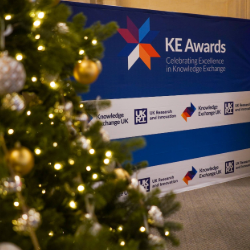
Northern Accelerator recognised as Place-based Knowledge Exchange Initiative of the Year
Northern Accelerator has been awarded the prestigious Place-Based Knowledge Exchange (KE) Initiative…
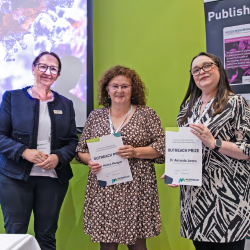
Northumbria team win prestigious outreach prize
A team led by researchers from Northumbria University have been awarded the 2024 Outreach Prize…
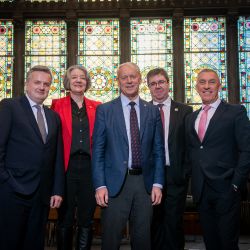
North East universities respond to proposals for higher education reform
The five universities in North East England have responded to the UK Government’s priorities…
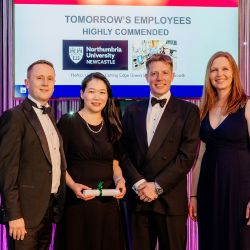
National award for renewable energy future leaders training programme
An innovative programme to develop the next generation of leaders in the renewable energy sector…

Northumbria University helps businesses turn waste streams into new products
Following its part in the successful delivery of a £4.7 million, three-year government funded…
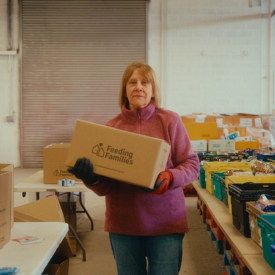
Northumbria film students call 'action' on support for local charity
A group of aspiring Film and TV Production students from Northumbria University have put their…

Supercomputer investment will power world-leading research and innovation
Northumbria University has announced a multi-million pound investment in its first university-wide…

Major boost for North East space sector following £2.5 million investment
The North East’s reputation for world-class space research and innovation has been recognised…
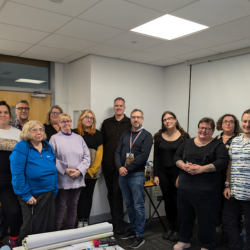
New study demonstrates an inclusive approach to leading research
People with lived experience of mental health distress will be able to take a lead on health…
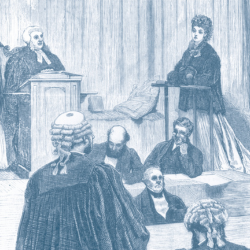
The book that almost never was – a story of Victorian independent women
A book written by two women, born 60 years apart, who never met, has finally been published,…
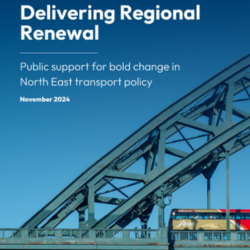
Report demonstrates public support for transformative North East transport policy
Members of the Common Sense Policy Group at Northumbria University have released a new report…
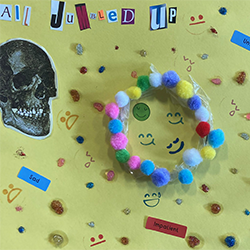
New research centres the voice of children in how schools can provide support for domestic abuse situations
During the Summer of 2024, researchers at Northumbria University worked with staff and children…
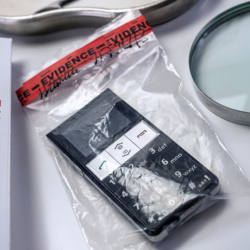
Northumbria research to help shape forensic science use in criminal law
Academics from Northumbria University, Newcastle, and the University of Derby have conducted…
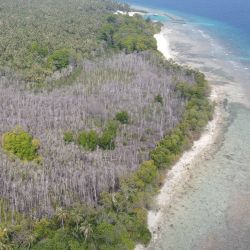
“Drowning” mangrove forests in Maldives signal global coastal threat
Researchers have found evidence that mangrove forests – which protect tropical and subtropical…
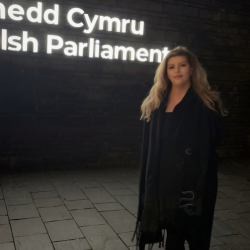
Northumbria Law School student addresses Welsh Parliament
Northumbria Law School PhD student, Becca French, has addressed the Welsh Parliament (Senedd…

